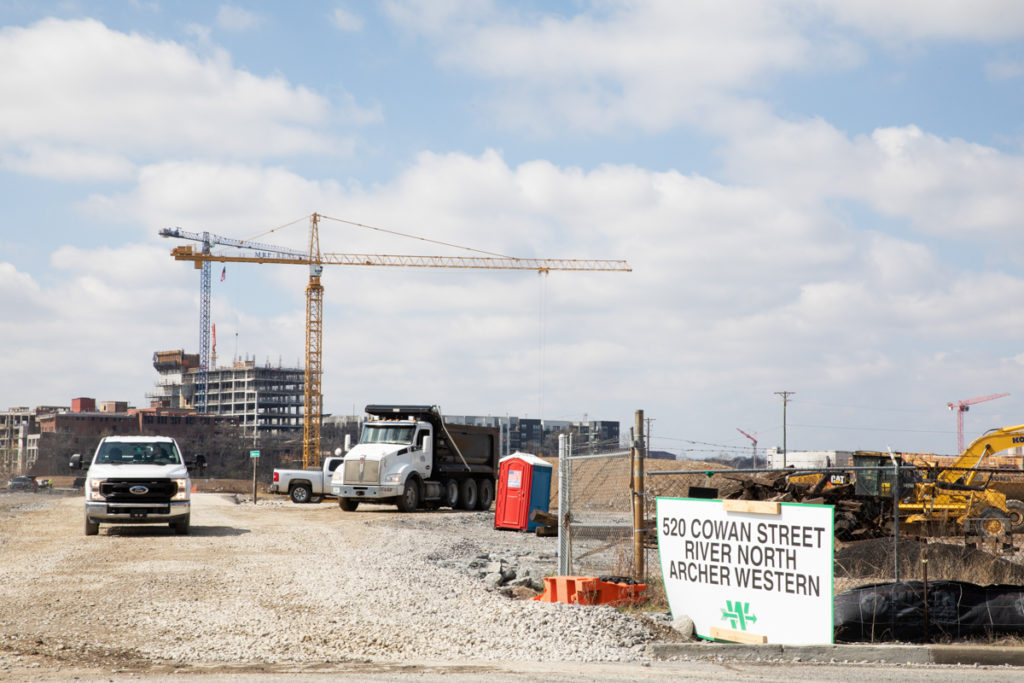
On any given day, construction crews can be seen working on the East Bank along the Cumberland River in East Nashville. They’re building a campus for tech giant Oracle. It’s a $1.2 billion project.
The company is expected to bring 8,500 jobs to the city, with an average wage of six figures.
“It gives our kids a path for success in the digital economy,” said Mayor John Cooper, one of the biggest supporters of the Oracle deal, during last year’s State of Metro address.
As Oracle and Amazon start to bring tens of thousands of jobs to Nashville, the city’s tech industry is seeing a historic economic boom. But there may not be enough Middle Tennessee residents to fill the jobs.
It’s a concern that’s been raised by community groups Stand Up Nashville and The Equity Alliance.
They’ve served as a voice for people who feel that the new wave of high-paying jobs will go to out-of-towners, instead of longtime residents. Some organizers say this could further price people out of their neighborhoods.
That idea isn’t far-fetched.
“I don’t think we have the talent at the top end of the market for most of these jobs,” said Nathan Gonzalez, the senior vice president of software development at Ncontracts.
“If Oracle comes in and they want to hire a lot of senior talent … they’re going to have a really hard time.”
Gonzalez, who has also worked as an instructor at the Nashville Software School, says it’s already tough enough for Ncontracts to fill those jobs without the presence of Oracle.
“But the companies that are willing to move down, and train and build people themselves, are the ones that are finding success, I think,” he added.
In the most recent Vital Signs report from the Nashville Area Chamber of Commerce, the organization highlighted that “Middle Tennessee is projected to have a shortage of workers qualified for good-paying jobs in IT, healthcare and business.”
 Damon Mitchell WPLN News
Damon Mitchell WPLN NewsCrystal Broach stands outside the building of the Nashville Software School. She became a developer at Ncontracts after graduating from one of the school’s programs.
Wilson County resident Crystal Broach is a graduate of the Nashville Software School, which has tried to address the tech side of the issue for the past decade.
It took her 12 months to finish with the help of the school’s tuition assistance program.
“Without that, I think eventually I would’ve made it here,” Broach said, “but I think it would’ve taken a lot longer.”
Broach finished while working full-time and taking care of her family. It was a task that some people aren’t able to push through.
It’s also the reason why community members say officials and employers need to make sure that the tech wave is in reach of everyday people.
“We have a lot of conversations with our partners in West Tennessee around the Ford investment,” said Emily House, the state’s higher education chief. “And that’s a very specific example of the ways in which higher ed and the workforce explicitly intersect.”
House says education leaders have also been thinking about ways to help people pay for costs at independent tech schools. The goal is to increase accessibility to tech jobs for residents across the state.
Last week, the Tennessee Higher Education Commission and Tennessee Board of Regents announced a partnership with Amazon to prepare 5,000 residents for careers in cloud computing.
The tech training will be available for people enrolled in the state’s nearly 30 participating community and technical colleges.
“THEC is proud to support increased access to high quality industry certifications that can not only help students get in-demand jobs, but also aid in their pursuits of higher education credentials,” said House in a press release. “This collaboration between AWS and TBR is vital to building a strong workforce in Tennessee, and many students across the state will benefit from this work.”

